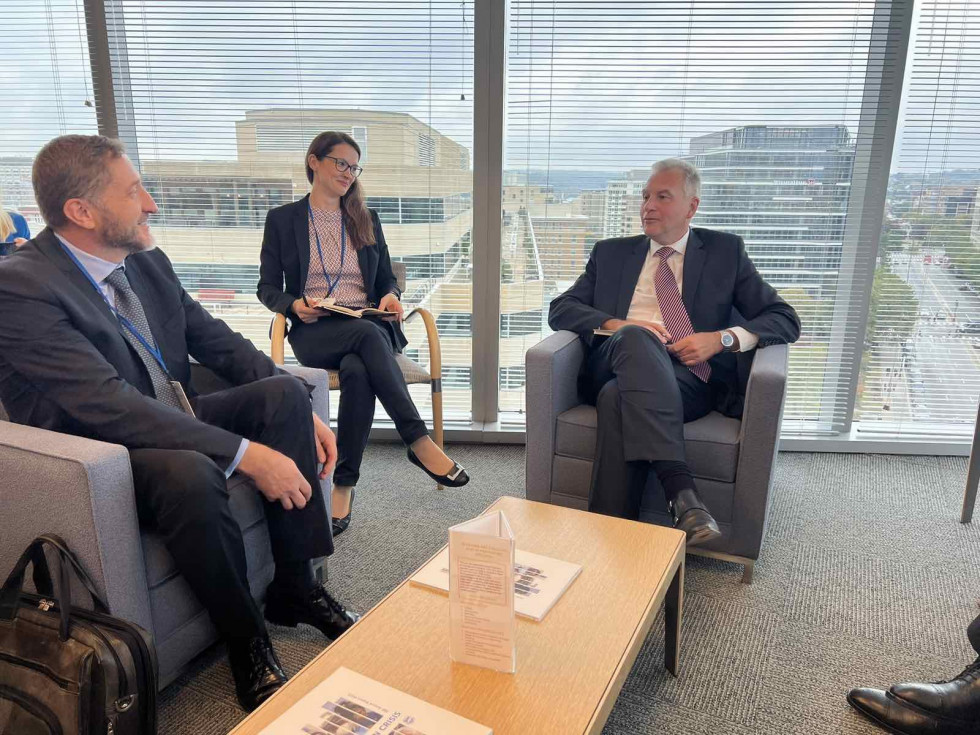Finance minister Boštjančič attends IMF and World Bank Group annual meeting

Meeting of finance minister Klemen Boštjančič with Alfred Kammer, director of the European Department at the IMF | Author Ministry of Finance
At the beginning of the week Mr Boštjančič attended a meeting with Donal McGettigan, the new IMF Mission Chief for Slovenia, and his team. They discussed macroeconomic developments and forecasts for Slovenia, the impact of the energy crisis and responses to it, the state of the financial system, and fiscal developments and outlook.
The global economy is currently facing numerous challenges. These include the consequences of the war in Ukraine, rising food and energy costs, and the impact of the Covid-19 pandemic. The IMF’s latest forecast for this year is predicting economic growth of 5.7% in Slovenia, up 2 percentage points on its spring forecast. It is forecasting growth of 1.7% in 2023, down 1.3 percentage points but still better than the forecasts for the euro area overall. The IMF is forecasting growth of 3.2% for the global economy this year, and cut its forecast for 2023 to 2.7%. It is also warning of persistently high inflation.
Mr Boštjančič also met the director of the European Department at the IMF, Alfred Kammer. They discussed the macroeconomic outlook for Slovenia and the euro area, and the impact of the European energy crisis.
The Slovenian delegation participated in the plenary meeting of the IMF and the World Bank Group. Slovenia believes that the World Bank Group has responded to the multiple interacting crises by increasing and accelerating support for countries in a way that strives for green, resilient and inclusive recovery and long-term development.
A meeting of the Development Committee, which was attended by the finance ministers of member states of the two organisations, discussed the food and energy crisis, and questions in connection with the financing of climate development goals. It also discussed the role of the World Bank Group in global economic development in the coming years. Slovenia supports the World Bank Group’s main policies. Great emphasis is also given to the priorities defined in the government’s resolution on international development cooperation. It expresses particular support for strategically directing resources to countries in the greatest need. This should strengthen financially weaker countries and countries caught up in conflicts.
The World Bank Group also organised a ministerial roundtable discussion on aid to Ukraine. The discussion focussed on Ukraine’s needs for financing, the priority tasks for preserving basic services in wartime, and above all the priority projects of reconstruction that can be begun quickly.

